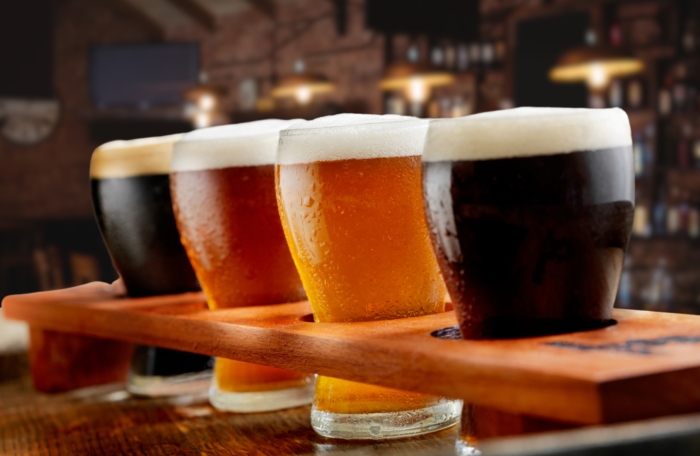Two baby steps toward helping wineries, breweries and brew pubs survive
Everybody loves wineries and craft breweries. Everyone except New Hampshire state statutes, that is. New Hampshire statutes show about as much affection for wineries and craft breweries as the English have for the French, or snooty wine drinkers have for rowdy beer drinkers.
For example, say you own a winery or craft brewery in New Hampshire, but your location is not exactly on the beaten path. You’re not drawing a lot of tourists down your windy rural road. However, lawmakers have graciously allowed you to have a separate retail outlet, and you created one in a busy tourist area.
Great for business! Unless people want to taste your product before buying it.
State law says that breweries and wineries can have a single license for on-premises alcohol sales—at the manufacturing location. Want to sell open drinks at your retail location—where potential customers actually are? Sorry.
You can sell closed-container drinks at your retail outlet, but not open-container drinks. Because,., safety. Or something.
This has been a problem for Apollo Vineyards in Derry. Restricted to serving wine only at their vineyard, they’re losing potential sales that could come from being able to serve at a retail outlet in a more prominent location.
House Bill 1076 would sort-of fix that problem by allowing wineries and breweries to choose whether to use their one on-premises license at the manufacturing facility or at the retail outlet.
Shouldn’t they be able to sell at both places, you might ask.
What do you think this is, the 21st century?
So what about brew pubs, which are a separate category in state law? Let’s say you own several restaurants in New Hampshire but have decided to also open a single brew pub because, well, brew pubs are cool and hip and trendy and you have a great idea for one.
Trivia question: Is it legal for you to do that?
Don’t be ridiculous. This is New Hampshire. Of course it isn’t legal.
State law prevents a beer manufacturer from also owning multiple on-premises alcohol licenses (such as for a restaurant or bar).
It turns out that this particular law has caused a huge problem for the owners of Lost Cowboy Brewing Co., which is under construction in Nashua. It’s being opened by Michael Timothy’s Group, which owns Buckley’s Great Steaks in Merrimack and Surf in Nashua and Portsmouth, among other restaurants.
Technically, their new venture is not a restaurant, but a beer manufacturer. So, technically, they can’t own it and be licensed to sell alcohol at their other restaurants.
House Bill 1380 would fix that by allowing a company that owns a beer manufacturing license to also hold licenses that allow the sale of alcoholic beverages for consumption on-or off-site. And, as amended, it would allow the owner to sell the beer from his brewery at one of his restaurants. Just one.
Now, you might be wondering what possible public health or safety justification there could be for prohibiting a company from distributing beer it makes at a local brew pub to more than one restaurant it owns elsewhere in the state.
Well, welcome to New Hampshire alcohol laws. The ghosts of Prohibition haunt these statutes. Each tiny step into modernity, such as the bills listed above, exorcises one of those pesky Prohibition ghosts, even though others usually work their way into the bills to pull them back a bit toward the 1930s. It’s a seemingly never-ending struggle between the future and the past.



